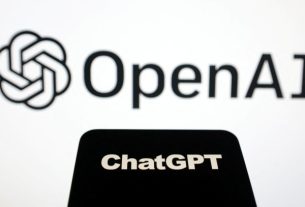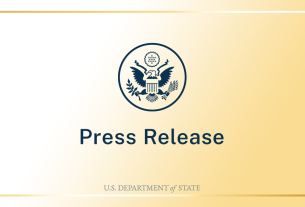A new statement about strengthening internet governance processes emerged from the NETMundial +10 meeting in Brazil last month, strongly reaffirming the value of and need for a multistakeholder approach involving full and balanced participation of all parties affected by the internet—from users, governments, and private companies to civil society, technologists, and academics.
But the statement did more than reiterate commitments to more inclusive and fair governance processes. It offered recommendations and guidelines that, if implemented, can strengthen multistakeholder principles as the basis for global consensus-building and democratic governance, including in existing multilateral internet policymaking efforts.
The event and statement, to which EFF contributed with dialogue and recommendations, is a follow-up to the 2014 NETMundial meeting, which ambitiously sought to consolidate multistakeholder processes to internet governance and recommended 10 process principles. It’s fair to say that over the last decade, it’s been an uphill battle turning words into action.
Achieving truly fair and inclusive multistakeholder processes for internet governance and digital policy continues to face many hurdles. Governments, intergovernmental organizations, international standards bodies, and large companies have continued to wield their resources and power. Civil society organizations, user groups, and vulnerable communities are too often sidelined or permitted only token participation.
Governments often tout multistakeholder participation, but in practice, it is a complex task to achieve. The current Ad Hoc Committee negotiations of the proposed UN Cybercrime Treaty highlight the complexity and controversy of multistakeholder efforts. Although the treaty negotiation process was open to civil society and other nongovernmental organizations (NGOs), with positive steps like tracking changes to amendments, most real negotiations occur informally, excluding NGOs, behind closed doors.
This reality presents a stark contrast and practical challenge for truly inclusive multistakeholder participation, as the most important decisions are made without full transparency and broad input. This demonstrates that, despite the appearance of inclusivity, substantive negotiations are not open to all stakeholders.
Consensus building is another important multistakeholder goal but faces significant practical challenges because of the human rights divide among states in multilateral processes. For example, in the context of the Ad Hoc Committee, achieving consensus has remained largely unattainable because of stark differences in human rights standards among member States. Mechanisms for resolving conflicts and enabling decision-making should consider human rights laws to indicate redlines. In the UN Cybercrime Treaty negotiations, reaching consensus could potentially lead to a race to the bottom in human rights and privacy protections.
To be sure, seats at the policymaking table must be open to all to ensure fair representation. Multi-stakeholder participation in multilateral processes allows, for example, civil society to advocate for more human rights-compliant outcomes. But while inclusivity and legitimacy are essential, they alone do not validate the outcomes. An open policy process should always be assessed against the specific issue it addresses, as not all issues require global regulation or can be properly addressed in a specific policy or governance venue.
The NETmundial+10 Multistakeholder Statement, released April 30 following a two-day gathering in São Paulo of 400 registered participants from 60 countries, addresses issues that have prevented stakeholders, especially the less powerful, from meaningful participation, and puts forth guidelines aimed at making internet governance processes more inclusive and accessible to diverse organizations and participants from diverse regions.
For example, the 18-page statement contains recommendations on how to strengthen inclusive and diverse participation in multilateral processes, which includes State-level policy making and international treaty negotiations. Such guidelines can benefit civil society participation in, for example, the UN Cybercrime Treaty negotiations. EFF’s work with international allies in the UN negotiating process is outlined here.
The NETmundial statement takes asymmetries of power head on, recommending that governance processes provide stakeholders with information and resources and offer capacity-building to make these processes more accessible to those from developing countries and underrepresented communities. It sets more concrete guidelines and process steps for multistakeholder collaboration, consensus-building, and decision-making, which can serve as a roadmap in the internet governance sphere.
The statement also recommends strengthening the UN-convened Internet Governance Forum (IGF), a predominant venue for the frank exchange of ideas and multistakeholder discussions about internet policy issues. The multitude of initiatives and pacts around the world dealing with internet policy can cause duplication, conflicting outcomes, and incompatible guidelines, making it hard for stakeholders, especially those from the Global South, to find their place.
The IGF could strengthen its coordination and information sharing role and serve as a venue for follow up of multilateral digital policy agreements. The statement also recommended improvements in the dialogue and coordination between global, regional, and national IGFs to establish continuity between them and bring global attention to local perspectives.
We were encouraged to see the statement recommend that IGF’s process for selecting its host country be transparent and inclusive and take into account human rights practices to create equitable conditions for attendance.
EFF and 45 digital and human rights organizations last year called on the UN Secretary-General and other decision-makers to reverse their decision to grant host status for the 2024 IGF to Saudi Arabia, which has a long history of human rights violations, including the persecution of human and women’s rights defenders, journalists, and online activists. Saudi Arabia’s draconian cybercrime laws are a threat to the safety of civil society members who might consider attending an event there.


